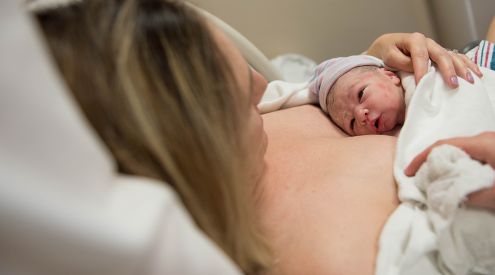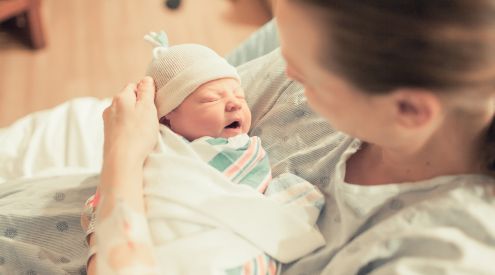
- Our studies
- Our research
- Publications and resources
- Data access and training
- About
- News
- Events
- Get in touch
- Join our mailing list

This project aims to advance our understanding of whether Medically Assisted Reproduction (MAR) affects the wellbeing of families, and if so why. Using the UK Millennium Cohort Study and Population Registers from Nordic Countries and the USA, we analyse MAR’s effects on a large range of adult/child outcomes through innovative research designs.
| Project title | Medically assisted reproduction: the effects on children, adults and families |
|---|---|
| Project lead | Alice Goisis |
| Themes | Child development |
| Dates | February 2019 – January 2024 |
| Funder | |
| Summary |
Call for papers: Submissions deadline 15 March 2024
Call for papers event poster (opens a PDF on the CLS website)
International Symposium on Medically Assisted Reproduction: Health, social and demographic aspects, 16-18 September 2024, Villa Vigoni, Italy.
The number of children conceived after Medically Assisted Reproduction (MAR) and of adults who undergo these treatments has been steadily increasing. Many questions remain regarding the wellbeing of MAR conceived children, barriers in access to MAR and the demographic and social consequences of increasing MAR use. This interdisciplinary event will bring together scholars for
presentations, discussions, and critical reflections around the topic.
Submission information
We invite proposals for presentations and posters on any health, social and demographic aspects of Medically Assisted Reproduction which affect children, adults and families, including matters around egg donation, surrogacy, egg freezing, access to MAR treatments, and more broadly around current fertility levels and intentions, reproductive health and rights, and childlessness in the European context and beyond. We welcome both empirical (qualitative or quantitative) and conceptual papers.
Please submit an abstract of no more than 400 words using the online form. The submission deadline is 15th of March 2024 and notification of acceptance will be sent out in April 2024. Please note we can only consider one submission per presenter (either oral or poster).
Confirmed keynote speakers:
• Prof. Lone Schmidt (University of Copenhagen)
• Dr. Diederik Boertien (Centre d´Estudis Demogràfics, Barcelona)
• Prof. Mikko Myrskylä (Max Planck for Demographic Research, Rostock)
The event will open with a welcome speech from the Rector of Bocconi University, Prof. Francesco
Billari.
Travel and accommodation
The event will take place on 16-18 September 2024 at Villa Vigoni by Lake Como, Italy. The event is
free of charge and accommodation costs and meals will be covered by the event organisers. Attendees
will need to fund their own travel to and from the event. The nearest airport to Villa Vigoni is Milano
Malpensa or Milano Linate. Please see more details on how to reach the venue here. Please note that
there are no childcare facilities at the Villa.
Organising committee
For inquiries and issues with access to the submission form please contact us at: MARevent2024@gmail.com


Phone: 020 3108 9868
Email: a.goisis@ucl.ac.uk
Alice is Associate Professor of Demography and Research Director at the Centre for Longitudinal Studies. She is a family demographer whose research interests span a number of substantive areas in social demography and epidemiology such as the consequence of childbearing postponement on child well-being and the social determinants of health. Alice is PI of an European Research Council Starting Grant to study the effects of Medically Assisted Reproduction on children, adults and parents. From 2019-2021 she was also the PI of an ESRC New Investigator Grant to study only children in the UK.
Maria conducts quantitative analysis using the Millennium Cohort Study to research adults who undergo Medically Assisted Reproduction (MAR) to conceive, and children who are born after MAR.
Email: a.pelikh@ucl.ac.uk
Alina is a demographer working on the European Research Council Grant to study the effects of Medically Assisted Reproduction on children, adults and parents. Her research interests include life course, families and fertility, transition to adulthood, social inequalities, social policy, and residential mobility.
Alina previously worked for Understanding Society at the Institute for Economic and Social Research (ISER) at the University of Essex. Her projects included investigating mothers’ and fathers’ employment trajectories in the UK and exploring the impact of childcare prices on women’s labour market outcomes. In her PhD, Alina investigated how various life course trajectories of young people in the UK have changed across cohorts.